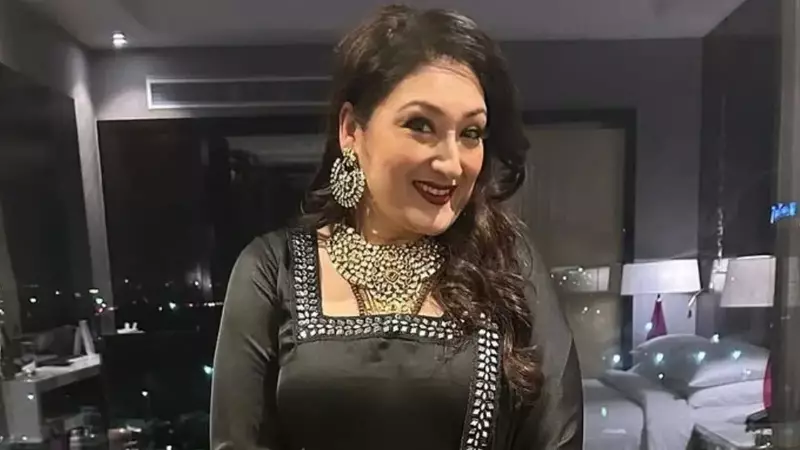
Sunita Ahuja Opens Up About Diabetes and Dietary Preferences
Sunita Ahuja, the wife of renowned Bollywood actor Govinda, has recently shared intimate details about her dietary choices and how she manages her diabetes through mindful eating. The 57-year-old revealed that her food preferences have evolved significantly over the years, particularly after being diagnosed with diabetes.
Managing Diabetes Through Dietary Restrictions
In a candid conversation, Ahuja emphasized her need to avoid certain foods due to her health condition. "I can't eat potatoes a lot because I have diabetes," she stated clearly. Despite this restriction, she expressed contentment with simple vegetarian meals that form the core of her diet.
Her typical meal preferences include traditional Indian comfort foods like dal chawal with bhindi sabzi or aloo bhujia. However, she carefully moderates her potato consumption. "I am very happy with aloo bhujia, roti, and moong ki dal. And I also need my pickle and papad," she shared, highlighting how she balances taste with health requirements.
Limited Non-Vegetarian Consumption Pattern
Ahuja revealed an interesting pattern in her non-vegetarian food consumption. "I don't eat non-vegetarian food on Mondays, Tuesdays, Thursdays, and Saturdays. I only get to eat non-vegetarian food on Wednesdays and Fridays," she explained. This structured approach helps her maintain dietary discipline while occasionally enjoying her preferred foods.
She further added that she has significantly reduced her non-vegetarian intake overall. "But I don't eat non-vegetarian food a lot. I have almost given up," Ahuja noted. However, she does make exceptions when dining out with her son Yash, who enjoys Chinese cuisine.
Culinary Journey and Family Approval
Reflecting on her cooking background, Ahuja shared that she began her culinary journey at the young age of 16. Her skills were particularly tested after marriage to Govinda, who is known to be a food enthusiast. "I have cooked a lot when I got married. My mother-in-law and Govinda liked what I made," she recalled with evident pride.
Her repertoire included dishes that became family favorites, such as palak paneer, bhindi, toor dal, and toor dal with palak. She emphasized that learning to cook these dishes was motivated by her husband's love for good food. "I have learnt everything because I knew he is a foodie," she revealed.
Expert Opinion on Diabetes Management Through Diet
Dt Amreen Sheikh, chief dietitian at KIMS Hospitals in Thane, commented that Ahuja's approach reflects a balanced, mindful nutritional strategy rather than strict avoidance. "Health isn't about extremes; it's about balance," Sheikh emphasized, validating Ahuja's dietary choices.
The nutrition expert suggested that for diabetics who occasionally consume non-vegetarian food, choosing lean meats like fish or chicken and preparing them using healthier cooking methods can make a significant difference. "Pairing non-veg dishes with fibre-rich vegetables, lentils, or whole grains also helps with better digestion and heart health," Sheikh added.
Benefits of Reduced Non-Vegetarian Consumption
According to dietary experts, reducing non-vegetarian food intake offers multiple health advantages:
- Improved gut health and digestion
- Reduced inflammation in the body
- Better weight management
- Increased energy levels
- Environmental sustainability
Sheikh noted that "many people feel lighter and more energetic when their diet includes more plant-based foods." This aligns with Ahuja's expressed satisfaction with vegetarian meals.
Creating a Balanced Plate for Occasional Non-Vegetarian Eaters
For those who occasionally include non-vegetarian items in their diet, experts recommend following the balanced plate principle:
- Half the plate should contain vegetables and salads
- One quarter should include whole grains like brown rice or millets
- The remaining quarter should consist of protein sources
- Add a portion of fruit and maintain proper hydration
"The key takeaway is that variety and moderation always beat restriction," Sheikh concluded, reinforcing the approach that Sunita Ahuja has naturally adopted in her dietary habits.
Ahuja's revelations provide valuable insights into how individuals can manage health conditions like diabetes while still enjoying diverse cuisines, demonstrating that dietary management doesn't necessarily mean complete deprivation but rather smart, balanced choices.






